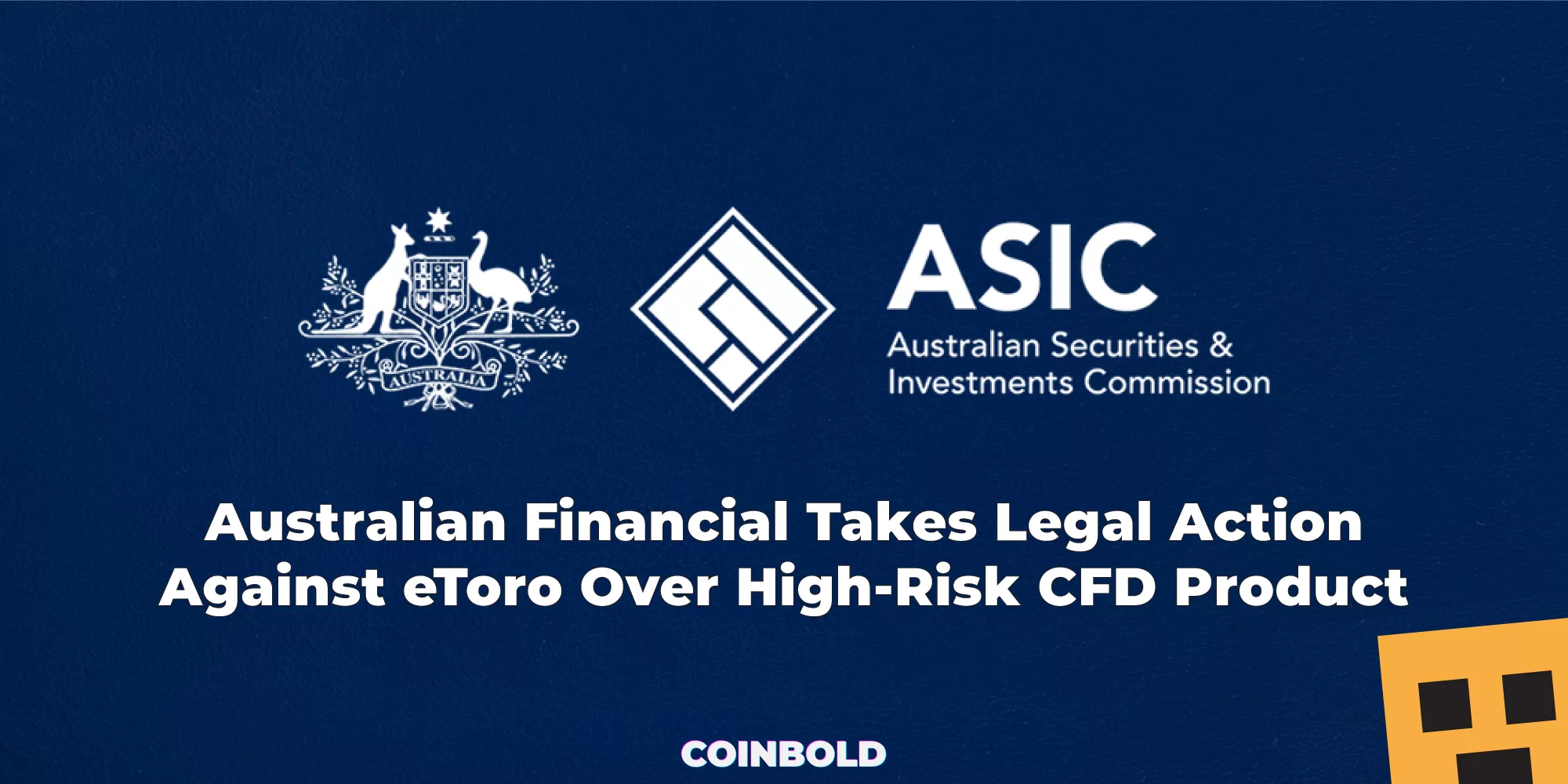The Australian financial regulator, ASIC (Australian Securities and Investments Commission), has taken legal action against the popular crypto investment platform, eToro. The lawsuit revolves around eToro’s contract for difference (CFD) product, a leveraged derivative that enables buyers to speculate on the price movements of various underlying assets, including cryptocurrencies, commodities, stock market indices, and FX rates. According to ASIC, this particular CFD product poses significant risks to retail clients, leading to financial harm.
The heart of the case lies in eToro’s user acquisition strategy and the screening process used to identify potential customers for their CFD product. The Australian government’s financial body alleges that eToro’s target market for the CFD product was too broad, considering its high-risk and volatile nature. ASIC accuses the crypto platform of breaching design and distribution obligations by not acting honestly and fairly.
Inadequate Screening Test Raises Concerns
During the legal proceedings, ASIC points out that the screening test employed by eToro to assess the suitability of users for the CFD product was deemed inadequate. The test failed to differentiate potential clients whose investment objectives aligned with the high-risk nature of CFD trading from those whose objectives did not. As a result, the product was exposed to a significant number of users who were ill-suited for such risky ventures, leading to substantial financial losses.
eToro’s Alleged Impact on Consumers
According to ASIC’s findings, nearly 20,000 users lost money while trading CFDs on eToro between October 5, 2021, and June 14, 2023. The regulator cites this statistic as evidence of the potential financial harm the platform’s product caused to consumers. Additionally, eToro’s own website indicates that 77% of retail investor accounts lose money when trading CFDs with their platform, further reinforcing ASIC’s claims.
ASIC’s Stringent Measures to Protect Citizens
The legal action against eToro demonstrates ASIC’s commitment to safeguarding Australian citizens from the risks associated with cryptocurrency investments. The regulator has been taking a proactive approach, ensuring that financial entities operating in the country adhere to strict guidelines and maintain transparent practices.
Notably, this isn’t the first time ASIC has taken action against crypto companies. In a previous incident, ASIC revoked the financial license of FTX Australia, limiting the exchange’s operations in the country due to compliance issues.
eToro’s Response
In response to the legal battle with ASIC, eToro has stated that it will vigorously defend its product and business practices in court. The company argues that it has always been committed to providing transparent information to its users, including the risks involved in trading CFDs.
eToro’s spokesperson emphasized that the platform continuously updates its risk warnings and educational materials to ensure users have a comprehensive understanding of the products they trade. They also pointed out that eToro is constantly refining its screening process to enhance customer suitability assessments.
Conclusion
The legal proceedings against eToro by ASIC have raised critical questions about the responsibility of financial platforms when offering high-risk investment products. As the case unfolds, the outcome will have broader implications for the crypto industry, potentially leading to more stringent regulations and increased consumer protection measures. The battle between the Australian financial body and eToro serves as a reminder that as the crypto market continues to evolve, regulatory bodies worldwide will continue to closely monitor and address potential risks to safeguard the interests of their citizens.



